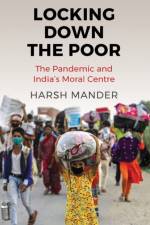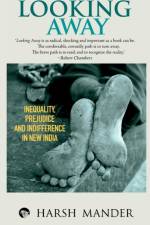von Harsh Mander
35,00 €
The summer of 2021 saw a massive rise in the number of infections and deaths fromCovid-19 in India. Even by conservative estimates, at least 1.5 million people hadlost their lives by June; several times the official figure. As in the first wave of thepandemic, this time, too, the chaos and suffering was in large measure, as HarshMander shows, due to mismanagement by an uncaring and cynical state.The first part of the book, 'Locking Down the Poor', describes the grave humanitariancrisis of 2020, which pushed the urban poor to the brink of starvation. It shows howthis was a direct consequence of public policy choices that the central governmentmade, particularly of imposing the world's longest and most stringent lockdown,with the smallest relief package. Mander brings us voices of out-of-work daily-wageand informal workers, the homeless and the destitute, all overwhelmed by hunger,humiliation and dread. From the highways and overcrowded quarantine centres, hebrings us stories of the estimated 3 crore migrant workers whose livelihoods weredestroyed, forcing them to walk hundreds of kilometres to their villages.The second part of the book, 'Burning Pyres, Mass Graves', records the horrorsof the following year, when everything from hospital beds to oxygen and essentialmedicines fell disastrously short. Mander traces the causes for these shortages to thecriminal neglect of public health in India, a situation made worse under the NarendraModi government, leading to the extortion of a beleaguered population by everyonefrom suppliers of oxygen cylinders to pharma billionaires. He holds the state culpablefor indulging in pageantry-with the PM advertising himself as a messiah-when thecountry needed to brace for the impact of the second wave.Combining ground reports with hard data and first-hand knowledge, Mander chroniclesthe greatest humanitarian catastrophe India has faced in a century, the effects of whichwill be felt for decades. This powerful, even shattering, book is a necessary record ofa national tragedy that too many of us want to forget, when remembering is our onlydefence against a similar disaster in the future.






